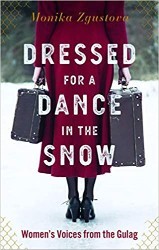The Soviet Union is remembered for many things — mass repression, purges, and chronic shortages among them. Yet one of its most radical legacies rarely makes the list.
After the Bolshevik Revolution of October 1917, Soviet women gained the right to vote, no-fault divorce, child support, and free higher education. Abortion and birth control were soon legalized. By 1920, all women were required to work, a Marxist idea intended to reduce their dependence on men. Life was a “fairy-tale” for women in the first country to legally emancipate them, revolutionary Alexandra Kollontai would claim.
In Motherland, Soviet-born journalist Julia Ioffe follows the Bolsheviks’ feminist experiment from its ambitious beginnings to a slow unraveling under successive male leaders. “Three generations of soviet women had carried this fairy-tale country on their backs,” she writes, “Rebuilding and repopulating it as the men in charge repeatedly laid waste to it.”
Ioffe, who left Moscow for Maryland in 1990 amid a wave of Jewish emigration, tells Russian history through revolutionaries like Kollontai, the wives and daughters of Soviet leaders, and ordinary citizens. At first, Soviet women seized new professional opportunities. They comprised seventy percent of all physicians and had one of the highest literacy rates in the world. Ioffe’s own mother, grandmothers, and great-grandmothers became doctors and scientists. Ioffe’s other subjects include some of the nearly one million women who fought against Nazi Germany. One paratrooper, an 18-year-old Jewish woman named Ida Segal, would experience some of the war’s most horrific battles at Stalingrad and Kursk. Her motivation: “Defending my near and dear ones.”
During the Great Patriotic War, as it became known, nearly 27 million Soviets died. To address the demographic crisis, the state taxed the childless and stripped women of the right to pursue child support. With potential fathers in short supply, these policies tacitly encouraged male adultery and pregnancies outside of wedlock. In the stagnant postwar decades, many men turned to alcohol. Coddled by society, they were absolved of parenting and housework. Women now shouldered a “double burden” at work and at home without modern appliances and while spending hours bartering for goods or standing in line for groceries. Women’s career prospects, meanwhile, were rolled back and traditional domestic roles reasserted.
When Ioffe returned to her native Moscow in 2009 as a foreign correspondent, she found that the very gender norms the Bolsheviks once sought to dismantle were back in post-Soviet Russia. For educated urban women, the dream was now to marry rich and become a housewife.
After their increasingly authoritarian turn, Russian leaders soon styled themselves as defenders of “family values.” In 2017, domestic violence was decriminalized. Those with foresight, Ioffe writes, knew that “sanctioning violence in the home helped to sanction violence by the state.” When Russia launched its full-scale invasion of Ukraine, mothers were among the few dissenting voices in a country that cracked down on protest. Hopes for a different future once flickered with Pussy Riot and opposition leader Alexei Navalny. Since Navalyn’s death in 2024, his wife, Yulia, has assumed his work from abroad.
Motherland is a moving, incisive, and ultimately heartbreaking account of the first and most ambitious attempt to engineer gender equality, an experiment that ended in familiar fashion: with women upholding a society that refuses to return the favor.
Maksim Goldenshteyn is Seattle-based writer and the author of the 2022 book So They Remember, a family memoir and history of the Holocaust in Soviet Ukraine.





